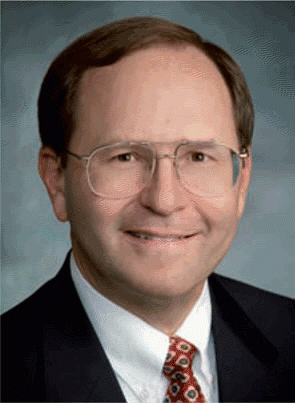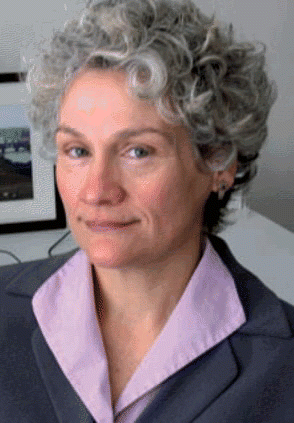With the crisis in the financial markets reaching what many call historic proportions, another crisis long brewing is threatening to surface that, if some experts are correct, could have even greater consequences than the financial crisis for the US health care system.
Explore This Issue
November 2008In the keynote address that opened the 2008 annual meeting of the American Academy of Otolaryngology-Head and Neck Surgery Foundation (AAO-HNS/F), Nancy M. Kane, DBA, Professor and Associate Dean for Educational Programs in the Department of Health Policy and Management at Harvard School of Public Health, said that the financial crisis should serve as a wake-up call for a pending similar crisis in the health care industry.
And she laid out the numbers. Of the $53 trillion in liabilities and unfunded entitlement promises that make up the current federal deficit, $41 trillion is due to Medicare and Social Security-promises already made to today’s workers and retirees. At the same time, the cost burden on elderly beneficiaries is taking a substantial bite out of their Social Security checks, on which many depend for their primary source of retirement income. The average cost of Medicare premiums and cost sharing absorbs 26% of the average Social Security benefits, and costs are growing faster than benefits.
Beyond the burden on the government and the elderly in the Medicare program is the rising tide of uninsured nonelderly people that reached 45 million in 2005, and is, according to Dr. Kane, yet another sign that our system has become unaffordable to too many Americans.
What do these numbers reveal? For policymakers like Dr. Kane, who is a member of the committee that advises Congress on payment reform for Medicare, these numbers send an urgent message that we need to change how we finance and practice medicine in this country.

According to Dr. Kane, everything needs to be on the health care reform table, including government leadership in determining supply of facilities and professionals, fundamental changes in medical education, greater transparency of prices and clinical outcomes, public disclosure of physician and other provider conflicts of interest, and payment redesign.
Spending much of her time on issues of payment redesign, Dr. Kane emphasized the need to reform fee-for-service payment, which, she said, doesn’t reward quality of care but instead encourages volume of services. Fee-for-service payment may actually reward poor quality of care-because the sicker a patient is, the more the system pays the providers.
The unit of payment needs to change, she said. One proposed way to change the method of payment would be to bundle payments around the episode of care and hold physicians and physician groups responsible for the cost and quality of the bundle of care.
According to Dr. Kane, this type of payment method would discourage physicians from performing services that do not add value to patient outcomes.
A good example of this, she said, is the problem of imaging. We have such a high rate of growth in imaging without any clear changes in outcome, she said.
 When we go to the table, we are restricted by the antitrust laws. We’re not protected like the insurance companies and lawyers. What no one has been able to tell the physicians is, ‘How do you tell your mother she can’t have this test?’
When we go to the table, we are restricted by the antitrust laws. We’re not protected like the insurance companies and lawyers. What no one has been able to tell the physicians is, ‘How do you tell your mother she can’t have this test?’-James C. Denneny III, MD
But Dr. Kane’s primary message to the audience of otolaryngolgists and head and neck surgeons was not to simply lay out the numbers and talk about specific issues of health care reform, but to urge these professionals to play a role in helping to provide more affordable health care with higher quality.
Role of Associations to Help Reform Health Care
Dr. Kane said that associations such as AAO-HNS/F can contribute by focusing on two main areas: medical practices and financial practices within their specialty.
One area of medical practice she emphasized was focusing on developing and implementing standards of care within the profession-for example, creating standards for the appropriate indications for imaging.
The association should educate its members on evidence-based medicine whenever possible, she said, as well as devote resources to evaluating comparative effectiveness of different practices so they know whether there is a real value in certain procedures over others.
According to James Denneny III, MD, an otolaryngologist in private practice in Knoxville, TN, and the immediate past president of AAO-HNS/F, efforts are under way within the AAO-HNS/F to demonstrate that treatments used within these professions are actually effective. We have quality initiatives and a lot of outcomes clinical research that are continuing to put out information on some of our most common diseases, he said.
Agreeing with Dr. Kane that imaging is a big problem that is driving up cost with its value yet to be demonstrated, Dr. Denneny said that the association is working on studies to actually show indications for and frequency of scanning procedures.
Somewhere along the line, there has to be an overriding person to control the system, he said, speaking on his own behalf and not as a spokesperson for the AAO-HNS/F. There is too much waste.
In terms of a financial practice that physicians could employ to help with health care reform, Dr. Kane encouraged physicians to set aside a part of their practice to treat patients who have no insurance or are on Medicaid. Most of these patients are now concentrated in public academic health centers and a lot of community health centers are bearing the brunt, she said, adding that that creates a huge shortage of specialists, such as otolaryngologists, for these populations.
Dr. Denneny, who still sees all these patients and feels it is part of his professional obligation, sees a drastic change in the culture of medicine that may be making it more difficult for younger physicians to take on these populations.
 It would be nice to hear [physicians] speak about bigger things that we face as a society and to play a leadership role in educating both public officials and their own members about some of these problems. Everyone can do something to make this better, and that includes [the physicians].
It would be nice to hear [physicians] speak about bigger things that we face as a society and to play a leadership role in educating both public officials and their own members about some of these problems. Everyone can do something to make this better, and that includes [the physicians].-Nancy M. Kane, DBA
Citing work laws that have restricted working hours for residents, generational differences in work ethics and expectations, as well as reduced fees for services while overhead increases, he said it is hard to get doctors to actually pay money out of their own pocket to take care of these people on a regular basis.
Dr. Denneny does think, however, that the whole profession needs to get involved and come up with a plan. We all need to take some responsibility, he said. I feel that the only group that cares about the patient other than the patient is us.
For Dr. Kane, one primary way that physicians could show their concern for their patients is to speak to their public officials in support of the health care reforms. However, what she hears from physicians most often is concern over their incomes.
It would be nice to hear [physicians] speak about bigger things that we face as a society and to play a leadership role in educating both public officials and their own members about some of these problems, she said. Everyone can do something to make this better, and that includes [the physicians].
For Dr. Denneny, this is a more complex issue for physicians than just showing up at the table. When we go to the table, we are restricted by the antitrust laws. We’re not protected like the insurance companies and lawyers, he said. What no one has been able to tell the physicians is, ‘How do you tell your mother she can’t have this test?’
Both Dr. Kane and Dr. Denneny emphasized that the interest of the patient should be paramount in any and all efforts at reforming current medical practices.
To ensure this, Dr. Denneny believes that physicians’ groups and patient groups need to get together to start talking. The questions to answer are What services do patients expect, and what services are going to be covered? Until we have answers to those questions, said Dr. Denneny, it will be difficult to adequately fashion a system to provide medical services, much less fund it.
Urging physicians and associations such as AAO-HNS/F to really put the patient first, Dr. Kane suggested improvements in medical education that would include addressing socioeconomic issues, as well as many other issues that directly and dramatically affect patient care, such as literacy problems and communication issues that often result in noncompliance.
To Reach ENT Today
For Editorial, Permissions, or Publishing Matters:
ENT Today
Lippincott Williams & Wilkins;
333 7th Avenue, 19th Floor;
New York, NY 10001;
Phone: (646) 674-6544;
Fax: (646) 674-6500;
ENToday@lwwny.com
For Advertising Sales:
Michael Guire
Lippincott Williams & Wilkins;
1300 Virginia Drive, Suite 400;
Ft. Washington, PA 19034;
Phone: (215) 643-8140;
Fax: (215) 643-3902;
Michael.Guire@wolterskluwer.com
©2008 The Triological Society
Leave a Reply